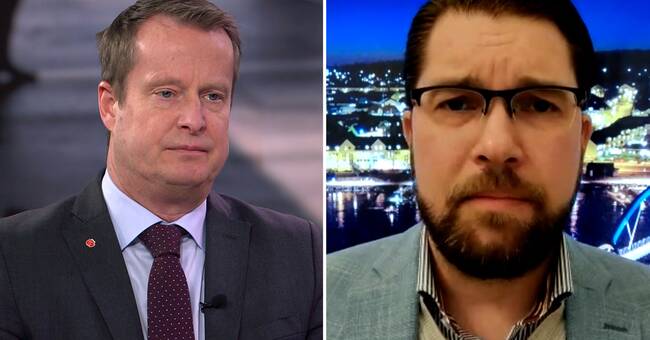When a wanted woman with a rejection decision, who worked as a cleaner in Sweden, was detained at the Prime Minister's home, the debate about the Swedish shadow society took off again.
The woman is one of many who have remained in Sweden despite rejection decisions.
In 2021, more than 10,000 people were reported who had had their application for a residence permit rejected as deviated and wanted by the police.
These are cases where the Swedish Migration Agency has made the assessment that a police intervention is needed to carry out the deportation.
SD: The police need resources
Despite political promises that more deportations will be carried out, the figures have been at the same levels for several years.
Since 2017, the Swedish Migration Agency has handed over around 17,000 rejection cases per year to the police - and every year more than 10,000 people have been wanted.
The Sweden Democrats' party leader Jimmie Åkesson criticizes the government.
- The government has not done anything to improve the situation, on the contrary, it has lost control completely.
It is very serious, says the SD leader in Aktuellt.
Åkesson believes that the police need better opportunities to check whether people have a legal right to stay in Sweden.
- The police have not been given the resources and powers they need to do, for example, internal alien checks, says Jimmie Åkesson.
“People run away”
Sweden's Minister of Migration Anders Ygeman (S) believes that what Jimmie Åkesson says about the government is not true.
Ygeman points out that a decision has been made about internal aliens controls.
- The Swedish Migration Agency now has the right to perform fingerprints and facial recognition during internal alien control, he says.
The Minister of Migration, on the other hand, agrees with Jimmie Åkesson that more needs to be done.
- We need a reception center where we have a comprehensive asylum management so we can avoid people running away when they get a no, he says.
There is also a need for better cooperation with the recipient countries, more repositories and tougher requirements for employers, says Anders Ygeman.

